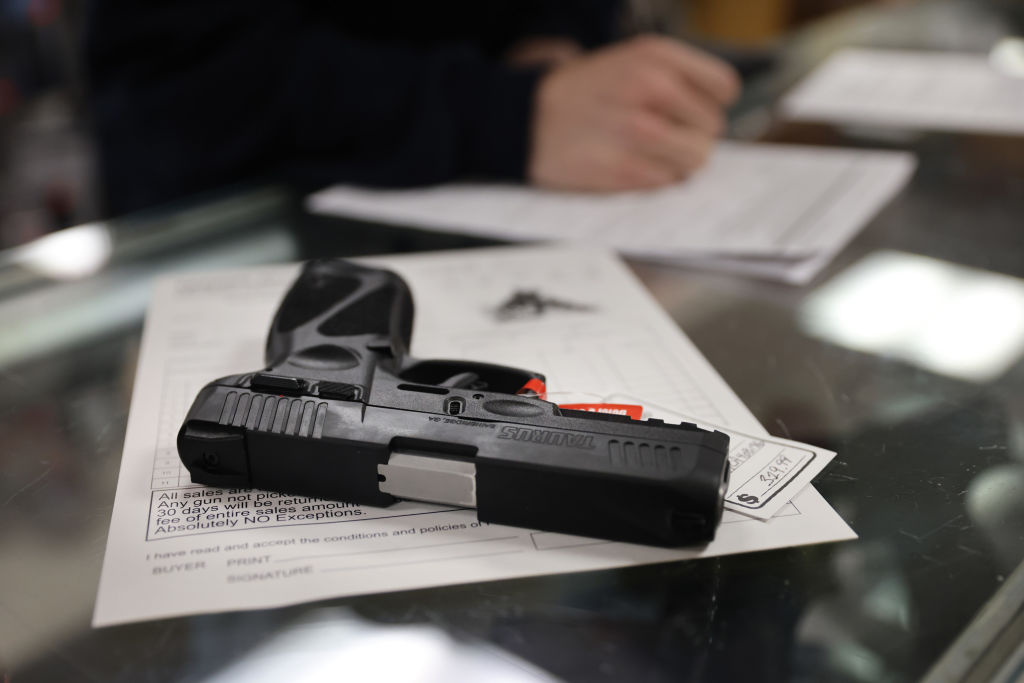In an on-going fight between the Biden administration and gun-toting enthusiasts, the U.S. Supreme Court will hear oral arguments over the regulation of “ghost guns” – untraceable firearms that can essentially be put together at home from kits ordered online – next week.
The 2022 federal rule allowed the Bureau of Alcohol, Tobacco, Firearms and Explosives to regulate the privately-made, DIY weapons, which lack serial numbers and are attainable without transfer records or background checks.
But the U.S. Court of Appeals for the Fifth Circuit struck down the decision last year, arguing it was overreaching in its definition of a firearm, siding with the rules challengers: Texas high school teacher Jennifer VanDerStok, Texas firearms instructor Michael Andren, gun manufacturer Tactical Machining, and Second Amendment rights nonprofit The Firearms Policy Coalition.
In Merrick B. Garland v. Jennifer VanDerStok, the Biden administration is asking the conservative majority Supreme Court to overturn the decision by the appeals court.
As part of the filing reviewed by the Lawyer Herald, Attorney General Merrick Garland warns the readily available kits allow for “anyone with basic tools and rudimentary skills to assemble a fully functional firearm in as little as twenty minutes.”
The Gun Control Act of 1968 defines a firearm to include “any weapon which will or is designed to or may readily be converted to expel a projectile by the action of an explosive,” as well as “the frame or receiver of any such weapon,” the court documents read.
The accessibility of the kits – whose parts do not contain serial numbers and are attainable without transfer records or background checks – are “attractive to criminals, minors, and others who are legally prohibited from buying firearms,” according to the petitioners.
The rule “makes clear that weapon parts kits and partially complete frames and receivers that can readily be converted into functional firearms or complete frames and receivers qualify as regulated ‘firearms,'” the documents state. “The rule does not prohibit the purchase, sale, or possession of any firearm, nor does it prohibit any individual lawfully entitled to possess a firearm from making one at home; instead, it simply ensures that ghost guns are subject to the same straightforward and inexpensive administrative requirements that apply to commercial sales of all other firearms.”
The goal of the act is to keep guns out of the hands of criminals and unauthorized gun owners, as well as assist law enforcement in criminal investigations, petitioners argued.
But, gun rights activists dispute the ATF’s rule oversteps.
“The statutory definition focuses on weapons and the frames or receivers of weapons; ATF’s Rule expands the definition to include weapon parts kits and items that cannot function as frames or receivers,” the respondents’ brief read. “This expanded definition upsets the delicate balance struck by Congress between the commercial production and sale of firearms and the non-commercial making of firearms by law-abiding citizens, and the Fifth Circuit properly held it to be unlawful.”
Gun rights activists accused the ATF of trying to “destroy” the gun industry.
“With respect to weapon parts kits, the Gun Control Act regulates weapons, not weapon parts kits,” according to the filing, and “not items which readily may be converted to be frames or receivers of such weapons.”
Furthermore, if the definition of a firearm has changed, that’s an issue to be taken up by Congress, the respondents argued.
Oral arguments will begin Tuesday at 10 a.m.







